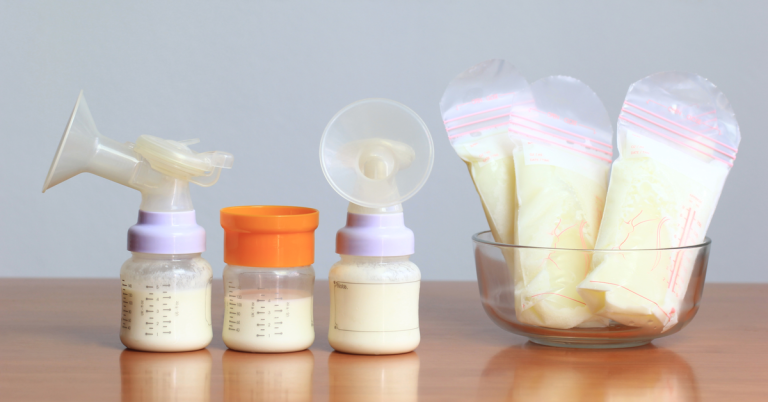What Does a 4 Month Old Baby Do?
- He can raise his head 90 degrees while standing on his stomach.
- He can laugh out loud.
- Can follow an object held approximately 15 cm above its face along an arc of 180 degrees (from side to side)
- He can hold his head in an upright position.
- It can be rolled from one side to the other.
- It can pay attention to objects as small as a grape.
- She can scream with joy.
- When seated by holding hands, he can keep his head at the same level as his body.
- She turns to the direction of the voice (especially her mother’s voice).
- It can put some weight on its legs when held upright.
- Can begin to sit with support.
- It can turn towards the sound.
4 Months Baby Nutrition
Dear mothers, you should continue to breastfeed your baby in these months. Breast rejection may occur during these months. You should continue to breastfeed your baby patiently without getting tired.
Is my milk of poor quality? Is my milk not enough for my baby? Such thoughts do nothing but affect your milk negatively and make you sad. Think positive and give good messages to the universe! 🙂
For the first six months, exclusive breast milk is essential for your baby’s development.
If your doctor does not recommend it and does not think that it should be fed with formula, definitely do not use formula. Four months is too early to switch to solid food. We do not want to change to other food before six months.
How Much Does a 4-Month-Old Baby Suck?
Every baby is unique. Every baby’s diet is different. In general, the stomach capacity of a four-month-old baby is 150-180 ml. It should be breastfed 4-8 times a day.
It should not be forgotten that the more you breastfeed, the more milk will be produced. Therefore, breastfeed your baby a lot.
How Much Should a 4 Month Old Baby Weight?
A 4-month-old boy weighs an average of 7000 grams, and a 4-month-old girl weighs an average of 6400 grams.
How Many CM Should a 4-Month-Old Baby Be?
- 4-month-old baby girl height lower limit: 56
- Maximum height of a 4-month-old baby girl: 68
- 4-month-old baby boy height lower limit: 57
- 4-month-old baby boy maximum height: 68
4 Months Old Baby Sleep
A 4-month-old baby usually sleeps 15 hours a day. They sleep for about 10 hours at night and 5 hours during the day. As in the first months, there are no frequent awakenings. If they wake up frequently, we recommend that you consult your doctor.
For all your problems with your baby’s sleep, you can read our article “Sleep Problems in Babies”.
You can start his sleep training slowly, and you can begin to establish routines before sleep. The ideal sleep routine for this period would be to massage it. You can make him fall asleep more easily by doing massages to relax him with small movements.
4 Month Old Baby Games
This is the period when your baby socializes. You will see that he is more curious about the environment and observes what is going on. A 4-month-old baby can start to hold the toy, so you should have your baby pass the toys and get them while playing with it. Of course, these toys should be light enough for him to hold.
So what are four-month-old baby toys?
Play rugs can be one of the ideal toys in this period. It will support her lying down and contribute to her physical development. You can make him play with the toys on the playmat by laying him on his face.
4 Months Baby Doctor Checkup
Although each doctor’s approach to controls may be different, we can generally say that he will pay attention to the following in this month’s control.
- Asking questions about whether you, your baby, and the rest of the family are having trouble at home and about your baby’s feeding, sleeping and general development.
- Measuring your baby’s height, weight, head circumference and add them to the development chart from birth.
- Performing a general physical examination in which previous problems were checked.
- Evaluation of the baby’s development. The examiner evaluates the infant’s head control, agility, vision, hearing, and social interaction.
- If your baby is in good health and has no disability, second-period vaccines are administered. (DTB: diphtheria-tetanus-pertussis; OPV: polio; Hib: Hemophilus influenza; Hepatitis-B: jaundice)
- If your baby is breastfed, information about vitamin D supplementation and fluoride support is given.
- Information about the transition to solid foods is given.
Would you like to share your experiences and questions as a comment?
Have a nice and healthy day!







